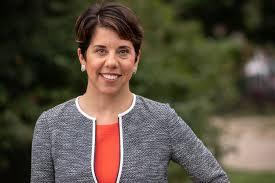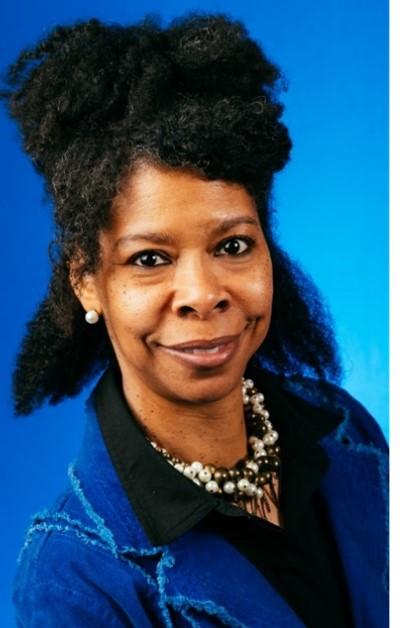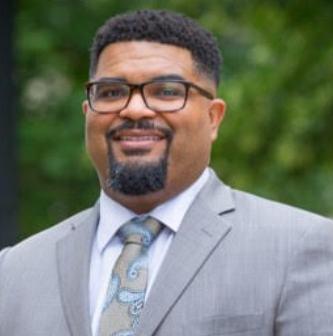The Future of Faculty Diversity (Part 1): Graduate Student & Faculty Recruitment
SREB-State Doctoral Scholars Program Webinar Series
View the webinar recording >
In this webinar, panelists from across the higher education spectrum discussed the importance of faculty diversity and shared thoughts on how institutions can better recruit diverse graduate students and faculty.
Across the country, higher education leaders are championing the importance of diversity, equity and inclusion. The calls for social change that came during the summer of 2020 in communities across the country have been amplified and highlighted within higher education institutions. On many campuses, a key component of the conversations is about an issue that has been inadequately addressed – or unaddressed entirely – for far too long: the lack of faculty diversity. In this webinar, panelists from across the higher education spectrum discussed the importance of faculty diversity and how institutions can better recruit diverse graduate students and faculty.
speakers:
 Lorelle Espinosa, Ph.D. serves
as program director at the Alfred P. Sloan Foundation, where she
is responsible for developing and implementing evidence-based
strategic priorities for the Foundation’s grantmaking to
effectively advance diversity, equity, and inclusion (DEI) in
STEM higher education. Dr. Espinosa’s portfolio includes the
Foundation’s signature DEI programs—the University Centers of
Exemplary Mentoring and the Sloan Indigenous Graduate
Partnership—which seek to transform STEM graduate education by
supporting universities in strengthening pathways to and through
master’s and doctoral study for Black, Latinx, and Indigenous
populations. With more than 20 years of experience in higher
education research, policy, and practice, Dr. Espinosa is a
national voice on issues pertaining to college access and success
for diverse populations and on the role of equity-minded
leadership in postsecondary settings. A Pell Grant recipient
and first-generation college graduate, Dr. Espinosa earned her
Ph.D. in higher education and organizational change from the
University of California, Los Angeles; her B.A. from the
University of California, Davis; and her A.A. from Santa Barbara
City College. More about Dr.
Espinosa >
Lorelle Espinosa, Ph.D. serves
as program director at the Alfred P. Sloan Foundation, where she
is responsible for developing and implementing evidence-based
strategic priorities for the Foundation’s grantmaking to
effectively advance diversity, equity, and inclusion (DEI) in
STEM higher education. Dr. Espinosa’s portfolio includes the
Foundation’s signature DEI programs—the University Centers of
Exemplary Mentoring and the Sloan Indigenous Graduate
Partnership—which seek to transform STEM graduate education by
supporting universities in strengthening pathways to and through
master’s and doctoral study for Black, Latinx, and Indigenous
populations. With more than 20 years of experience in higher
education research, policy, and practice, Dr. Espinosa is a
national voice on issues pertaining to college access and success
for diverse populations and on the role of equity-minded
leadership in postsecondary settings. A Pell Grant recipient
and first-generation college graduate, Dr. Espinosa earned her
Ph.D. in higher education and organizational change from the
University of California, Los Angeles; her B.A. from the
University of California, Davis; and her A.A. from Santa Barbara
City College. More about Dr.
Espinosa >
 Melvin (Jai) Jackson, Ph.D. (he,
him, his) is a higher education scholar-leader currently leading
as the Director for Graduate Student Success within the College
of Education at North Carolina State University. Dr. Jackson
earned both his bachelor’s degree in Health Care Management and
his master’s degree in College Student Development from
Appalachian State University. He earned his doctoral degree in
Educational Leadership, Policy, and Research from Louisiana State
University where he was recognized as a Louisiana Board of
Regents Doctoral Fellow and a proud Southern Region Education
Board Doctoral Fellow. He is a passionate servant-leader inspired
by his work towards student advocacy, success, and
representation. Through service in diversity, inclusion, and
equity, Dr. Jackson continues to dedicate his career towards the
proliferation of an environment of collective success and
anti-racist realities. More about Dr. Jackson
>
Melvin (Jai) Jackson, Ph.D. (he,
him, his) is a higher education scholar-leader currently leading
as the Director for Graduate Student Success within the College
of Education at North Carolina State University. Dr. Jackson
earned both his bachelor’s degree in Health Care Management and
his master’s degree in College Student Development from
Appalachian State University. He earned his doctoral degree in
Educational Leadership, Policy, and Research from Louisiana State
University where he was recognized as a Louisiana Board of
Regents Doctoral Fellow and a proud Southern Region Education
Board Doctoral Fellow. He is a passionate servant-leader inspired
by his work towards student advocacy, success, and
representation. Through service in diversity, inclusion, and
equity, Dr. Jackson continues to dedicate his career towards the
proliferation of an environment of collective success and
anti-racist realities. More about Dr. Jackson
>
 Rana Johnson, Ph.D., is a native of
Louisville, Kentucky and serves as the Associate Vice President
for Inclusive Excellence and Strategic Initiatives at Indiana
State University. Through four main initiatives, she has become
an advocate for equity and inclusion in higher education, faculty
diversity, first-generation students and their families and
culturally relevant pedagogy.
Rana Johnson, Ph.D., is a native of
Louisville, Kentucky and serves as the Associate Vice President
for Inclusive Excellence and Strategic Initiatives at Indiana
State University. Through four main initiatives, she has become
an advocate for equity and inclusion in higher education, faculty
diversity, first-generation students and their families and
culturally relevant pedagogy.
Dr. Johnson began her higher education career as a teaching and
research assistant at Eastern New Mexico University and the
University of Kentucky, respectively. She served almost two
decades at the Council on Postsecondary Education (CPE),
Kentucky’s statewide postsecondary and adult education
coordinating agency, overseeing several statewide policy
initiatives. Dr. Johnson also served on the SREB-State
Doctoral Scholars Program Regional Advisory Committee as the
Kentucky representative for nearly a decade. As a
former SREB scholar, she understands the significance of internal
and external support structures and the impact they have on
doctoral degree completion. More about
Dr. Johnson >
 Kent Smith Ph.D., is an
enrolled member of the Comanche Nation with Chickasaw and
Cherokee descent. He earned his doctoral degree in Zoology
from the University of Oklahoma. Dr. Smith is an associate
dean in the College of Osteopathic Medicine and professor of
Anatomy at Oklahoma State University Center for Health
Sciences (OSU-CHS) and is a Research Associate at the
Sam Noble Oklahoma Museum of Natural History. He is a
founding member of the Association of American Colleges of
Osteopathic Medicine’s Council on Diversity and Equity.
Kent Smith Ph.D., is an
enrolled member of the Comanche Nation with Chickasaw and
Cherokee descent. He earned his doctoral degree in Zoology
from the University of Oklahoma. Dr. Smith is an associate
dean in the College of Osteopathic Medicine and professor of
Anatomy at Oklahoma State University Center for Health
Sciences (OSU-CHS) and is a Research Associate at the
Sam Noble Oklahoma Museum of Natural History. He is a
founding member of the Association of American Colleges of
Osteopathic Medicine’s Council on Diversity and Equity.
Dr. Smith is a well-recognized fossil mammal expert. He has
authored papers published in international journals naming
several new fossil mammals including a short-jawed mustelid
that was named in honor of the Chickasaw people
(Brevimalictis chickasha). In 2014, Dr.
Smith founded the Office of American Indians in
Medicine and Science at OSU-CHS with a vision to
increase the number of American Indian physicians,
scientists, and educators. Kent’s passion to introduce STEM
and medicine to American Indian youth inspired him to create the
Native Explorers program and co-found the Chickasaw Nation’s
Junior Explorers program. He is a 2001 graduate of the SREB-State
Doctoral Scholars Program. More about
Dr. Smith >



